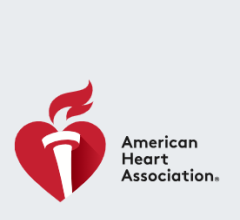
January 4, 2022 — The Omicron variant, as of Dec. 25, made up 58.6% of new COVID-19 infections in the U.S., according to the Centers for Disease Control and Prevention (CDC). This week, the U.S. also reported more than 98,000 people hospitalized from COVID. The seven-day average of new cases also reached its highest level ever reported in the U.S. with more than 480,000 new cases.
The rapid rise in new cases over the holidays prompted the American Heart Association (AHA) to issue a statement Dec. 22 reinforcing the need for vaccinations and boosters as soon as possible. The AHA continues to align with expert guidance from the CDC, the nation’s infectious disease experts, regarding COVID-19 vaccines and boosters.
“COVID-19 vaccination and boosters are our No. 1 defense to saving lives and protecting our families and loved ones against COVID-19 infection, severe illness and death. The benefits of the vaccine and boosters far outweigh the very limited, rare adverse events. The CDC’s safety protocols continue to include mask wearing for all people regardless of vaccination status when indoors, frequent hand washing and social distancing," the AHA statement authors wrote. “Here in the U.S., we are incredibly fortunate to have multiple vaccination choices. The American Heart Association implores everyone to get vaccinated as soon as possible.”
The association said it also remains concerned about the continuing gaps in COVID-19 vaccination among people from all eligible age groups in the U.S., including people from diverse racial and ethnic groups and pregnant people, particularly given the new Omicron variant. The AHA continues to recommend all adults and children ages 5 and older in the U.S. to receive the COVID-19 vaccine as soon as they are eligible, as recommended by the CDC and fully approved or authorized for emergency use by the FDA.
AHA Notes New Preference for mRNA Vaccines for COVID to avoid Rare Clotting Condition
On Dec. 16, the CDC recommended the mRNA COVID-19 vaccines as the preferred vaccines for most adults. The two-dose mRNA vaccines, produced by Pfizer-BioNTech or Moderna, are preferred rather than the single-dose, adenovirus-vector vaccine from Johnson & Johnson (Janssen). The new recommendation is in response to recent data indicating an increased risk of a rare condition called thrombosis with thrombocytopenia syndrome (TTS; also known as vaccine induced thrombocytopenia with thrombosis, or VITT) after receiving the Johnson & Johnson COVID-19 vaccine.
Read more on TTS and the Janssen vaccine
Symptoms of CVST Strokes Caused by TTS
TTS is the combination of low blood platelet count (thrombocytopenia) and thrombosis. One type of thrombosis associated with TTS is cerebral venous sinus thrombosis (CVST), which refers to blood clots in the brain’s veins - not in the arteries, as is the case for most strokes. CVST is a rare but serious type of stroke caused by a blood clot in a part of the brain known as the venous sinus, involving veins that carry blood away from the brain.
CVST clot symptoms are very similar to several other neurological conditions, and the symptoms may include:
• Severe headache
• Blurry vision
• Fainting or loss of consciousness
• Weakness
• Sensory changes
• Confusion or trouble speaking
• Nausea and vomiting
• Seizures
CVST occurs in the veins of the brain. In addition to CVST, other types of thrombosis associated with TTS include clotting in the veins of the legs (deep vein thrombosis or DVT), lungs (pulmonary embolism or PE), and abdomen. Symptoms associated with these other types of thrombosis include abdominal pain, leg pain, difficulty breathing or shortness of breath.
Among the TTS cases reported in the U.S., the most common symptoms were severe headaches; vomiting; back pain; fatigue; weakness or the inability to move one side of the body (hemiparesis); inability to speak or understand speech (aphasia); loss of consciousness; and abdominal pain.
Cases of TTS occurred several days after being vaccinated with the one-dose Johnson & Johnson COVID-19 vaccine. From March 2 through Aug. 31, 2021, there were 54 cases of hospitalized patients with TTS in the U.S., out of 14.1 million doses of the Johnson & Johnson vaccine administered, representing a case rate of 3.8 cases per million doses. The 54 documented cases of TTS were adults ages 28-62, the majority of whom were women (37 women vs. 17 men). There are no reports to-date of TTS after receiving the Johnson & Johnson vaccine as a booster dose.[2]
“The CDC’s latest data indicate that TTS is a rare, yet serious, possible side effect after receiving the Johnson & Johnson COVID-19 vaccine. Individuals who receive the Johnson & Johnson COVID-19 vaccine should be monitored for symptoms of TTS and seek immediate treatment,” said Mary Cushman, M.D., M.Sc., AHA volunteer expert, co-author of the association’s April 2021 special report on TTS, and professor of medicine and co-director of the Vermont Center for Cardiovascular and Brain Health at University of Vermont’s Larner College of Medicine in Burlington, Vermont. The association’s special report, Diagnosis and Management of Cerebral Venous Sinus Thrombosis with Vaccine-Induced Immune Thrombotic Thrombocytopenia, provides important guidance about TTS - the signs and symptoms and the best treatment options.
“The mRNA vaccines are the preferred vaccines for most adults, given the latest data on the rare, yet serious possible side effect of TTS after receiving the Johnson & Johnson COVID-19 vaccine. Despite the rare risk of TTS, the benefits of any of the three COVID-19 vaccines approved in the U.S. outweigh the risks of remaining unvaccinated,' the authors said in the AHA statement. “With the Omicron variant rapidly spreading throughout the U.S., we urge everyone 5 and older to get vaccinated against COVID-19 and get a booster dose as soon as they are eligible. Boosters are particularly important for adults ages 50 and older who have underlying medical conditions or any adult living in a long-term care facility.
The statement reflects the views of the AHA/ASA and its science leaders:
• President Donald M. Lloyd-Jones, M.D., Sc.M., FAHA,
• Immediate Past President Mitchell S.V. Elkind, M.D., M.S., FAHA, FAAN,
• President-Elect Michelle A. Albert, M.D., M.P.H., FAHA,
• Chief Science and Medical Officer Mariell Jessup, M.D., FAHA, and
• Chief Medical Officer for Prevention Eduardo Sanchez, M.D, M.P.H., FAHA, FAAFP.
For more information: heart.org
Related COVID and Vaccine Content:
AHA Funds Research on Underlying Causes and Therapies for Cardiovascular Impacts of Long COVID
FDA Contraindicates Janssen COVID Vaccine for People With Previous Thrombosis With Thrombocytopenia
VIDEO: Cardiac MRI Assessment of Myocarditis Caused by COVID-19 Vaccinations — Interview with Kate Hanneman, M.D.
Overview of Myocarditis Cases Caused by the COVID-19 Vaccine
COVID-19 Linked to Heart Inflammation in College Athletes — RSNA 2021 late-breaker
Cardiac MRI of Myocarditis After COVID-19 Vaccination in Adolescents
Large International Study Reveals Spectrum of COVID-19 Brain Complications - RSNA 2021 late-breaker
COVID-19 During Pregnancy Doesn’t Harm Baby’s Brain
VIDEO: Large Radiology Study Reveals Spectrum of COVID-19 Brain Complications — Interview with Scott Faro, M.D.
FDA Adds Myocarditis Warning to COVID mRNA Vaccine Clinician Fact Sheets
Small Number of Patients Have Myocarditis-like Illness After COVID-19 Vaccination


 November 14, 2025
November 14, 2025 









